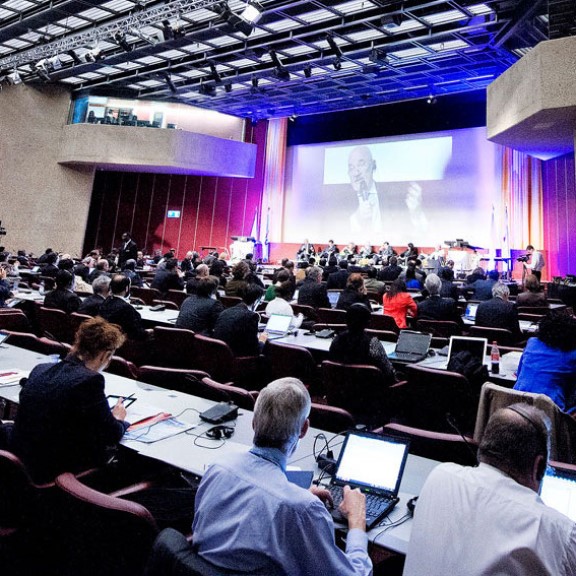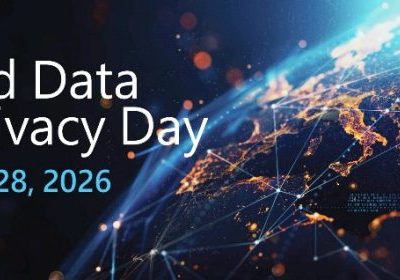Over 400 top representatives from the public and private sectors affirmed the need to align information and communication technologies (ICTs) and rapidly evolving new and emerging technologies with global priorities for sustainable development.
Delegates at the sixth World Telecommunications/ICT Policy Forum (WTPF-21) gave their seal of approval to a set of guidelines shaping future technology policy. These covered areas from inclusive connectivity and digital skills to using new and emerging technologies and services for sustainable development, fostering an effective enabling environment, and how tech can support effective COVID-19 response and recover
These guidelines, set out in non-binding policy documents known as “Opinions”, were approved in the Chairman’s report at the close of the WTPF-21, which took place online between 16 and 18 December. The Opinions reflect common views among ITU’s membership of countries, companies, institutions, academia and civil society, as refined and set down during a highly collaborative two-year multistakeholder preparatory process.
“The ITU family came together at WTPF-21 to discuss the new and emerging technologies that show so much promise for all humanity,” said ITU Secretary-General Houlin Zhao. “The output of this Forum sends a clear, strong and positive message to the world that these technologies and ICTs in general are essential to achieve the UN Sustainable Development Goals and address some of the world’s most pressing opportunities and challenges, from COVID-19 to the digital divide.”
Ursula Owusu-Ekuful, Minister of Communications and Digitalisation, Ghana and WTPF-21 Chair, said: “As ITU members, we owe it to ourselves to do our utmost to harness better the emerging technologies and ICTs to accelerate the achievement of the 2030 Agenda for Sustainable Development. Because when poverty is on the rise, when our children’s education is on the line, when our planet is suffering and when our health is impaired with existing and new diseases, we believe that these technologies can and will make a big difference.” She further said: “These Opinions will now provide guidance and support to ITU Member States in formulating future policy, and the task ahead for ITU members as stakeholders is to work towards implementing them.”
The Forum brought together representatives from all stakeholder groups belonging to 90 ITU Member States, 40 Sector Members and some 10 Observers and began with the presentation of the ITU Secretary-General’s report.
“The report by the Secretary-General is a balanced text recognizing the complexities of the current digital ecosystem,” explained ITU Deputy Secretary-General Malcolm Johnson. “The key public policy questions at its core provides a solid framework for discussion at WTPF-21, which will help build a digital future where no one is left behind and where opportunities have no boundaries.”
The report outlined the topics of the five Opinions:
– Enabling environment for the development and deployment of new and emerging telecommunication/ICT services and technologies to advance sustainable development;
– Affordable and secure connectivity in mobilising new and emerging telecommunications/ICTs for sustainable development;
– Digital literacy and skills for inclusive access;
– New and emerging technologies and services to facilitate the use of telecommunications/ICTs for sustainable development;
– Use of telecommunications/ICTs in COVID-19 and future pandemic and epidemic preparedness and response
Member State representatives acknowledged the Opinions as enablers for ICT development and shared insights on the key drivers of digital transformation in their own countries. Discussions approving the set of Opinions took place in three working groups, focussing on:
Supporting enabling environments, boosting connectivity
Working group one approved Opinions 1 and 2, which explored actions that can be taken to mobilize new and emerging technologies and ICTs for sustainable development, as well as measures to boost universal, affordable and secure connectivity.
RELATED ITU Digital World 2021 SME Awards Showcase Sustainable Digital Solutions
Summing up, Roberto Mitsuake Hirayama (Brazil), Chair of Working Group 1, said: “These two Opinions set down clear, actionable steps for ITU’s Membership to move forward, fostering productive enabling environments and harnessing new and emerging telecommunications/ICTs for sustainable development through affordable and secure connectivity. Forging consensus around these two Opinions at WTPF-21 will help the whole sector thrive and address the major challenges it faces and harness opportunities towards a digital future.”
“The crippling cost of digital exclusion is real and growing, jeopardizing the achievement of the United Nations Sustainable Development Goals. We have a once-in-a-generation opportunity to use the technologies and services at the heart of this Forum, combined with the power of multistakeholder partnerships, to re-energize sustainable development and drive faster and more inclusive connectivity everywhere. Let’s seize this opportunity with both hands,” said Doreen Bogdan-Martin, Director, ITU Telecommunication Development Bureau speaking at the opening of Working Group 1.
Importance of digital skills, new and emerging technologies and services
Opinions 3 and 4, looking at how to ramp up digital skills, and best policies and practices for using new and emerging technologies and services to facilitate the use of telecommunications/ICTs for sustainable development, were both approved.
“Now, more than ever, our collective focus must be on extending the right digital skills to everyone, fostering digital empowerment and inclusion. Effective future-oriented policy approaches, as set down in these Opinions, will be essential to building our digital future,” said Working Group 2 Chair, Lidia Stepinska-Ustasiak (Poland).
Stressing the importance of an equitable distribution, Chaesub Lee, Director, Director of the ITU Telecommunication Standardization Bureau, said: “New and emerging technologies and services must be widely distributed and shared fairly. Technology is always going to evolve, but we must stay true to our mission and vision – that is, building human potential, building trust, and enabling technological advances on a global scale.”
ICTs to tackle COVID-19 and in readiness for future pandemics
The Forum then moved to approve Opinion 5, which sets down crucial steps to be taken to mitigate and respond to COVID-19 as well as to be prepared for future pandemics and epidemics.
“COVID-19 is one of the biggest topics of our time. We must all learn from the experiences we have endured, and work as a global community to see how ICTs have been used to respond to the pandemic. We must figure out how we can do more to protect jobs, support education and health services, and how to build our economies and societies more inclusively,” said Jim Paterson (South Africa), Chair of Working Group 3.
“Government and industry are called upon to keep using the momentum gained during these challenging times to accelerate digital transformation and extend it to the almost 3 billion people who are still offline around the world. Going forward, our priority must be to bridge the digital divide and make access to communications affordable for everyone,” said Mario Maniewicz, Director, ITU Radiocommunication Bureau.






























